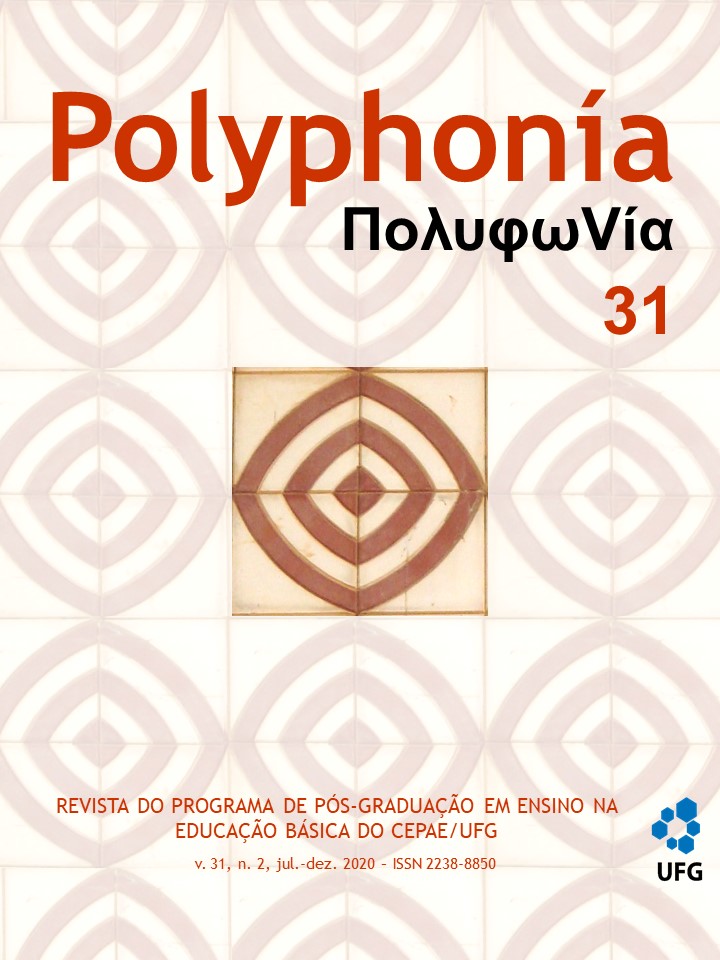O problema da indeterminação dos espaços da cidadania: mídias digitais e identidades culturais na educação básica
DOI:
https://doi.org/10.5216/rp.v31i2.67085Resumen
O artigo apresenta uma reflexão acerca do problema da indeterminação dos espaços de formação ou educação cidadã na contemporaneidade, marcada por novas formas de uso e apropriação dos espaços, não apenas físicos e analógicos, mas virtuais e digitais, ou melhor, híbridos. A dificuldade consiste justamente na delimitação desses espaços, haja vista o seu atravessamento por um espaço de natureza atópica e conectiva, o ciberespaço, sendo a internet e as mídias digitais a representação dessa “sucessão” à cidade física. Ante esse contexto, de territorialização, desterritorialização e reterritorialização, faz-se necessário repensar a questão das identidades culturais e sua importância para a questão da cidadania, haja vista que essas identidades não dependem mais apenas do território físico-geográfico para sua formação. O método utilizado consiste em revisão de literatura crítica, analítica e comparativa. Conclui-se que em uma sociedade mediatizada, pensar os meios de comunicação é imprescindível para pensarmos a cultura da participação nas escolas e nos processos formativos em geral.Descargas
Los datos de descargas todavía no están disponibles.
Descargas
Publicado
2020-12-16
Cómo citar
EDUARDO RIBEIRO, Saulo; SCHLEMMER, Eliane. O problema da indeterminação dos espaços da cidadania: mídias digitais e identidades culturais na educação básica. Revista Polyphonía, Goiânia, v. 31, n. 2, p. 41–56, 2020. DOI: 10.5216/rp.v31i2.67085. Disponível em: https://revistas.ufg.br/sv/article/view/67085. Acesso em: 21 ene. 2026.
Número
Sección
Dossiê Tecnologias Digitais na Educação Básica
Licencia
Política de direitos autorais (acesso livre). Autores que publicam nesta revista concordam com os seguintes termos: Autores mantém os direitos autorais e concedem à Revista Polyphonía o direito de primeira publicação, com o trabalho simultaneamente licenciado sob a Creative Commons Attribution License que permitindo o compartilhamento do trabalho com reconhecimento da autoria do trabalho e publicação inicial nesta revista.
Autores têm autorização para assumir contratos adicionais separadamente, para distribuição não-exclusiva da versão do trabalho publicada nesta revista (ex.: publicar em repositório institucional ou como capítulo de livro), com reconhecimento de autoria e publicação inicial nesta revista.
Autores têm permissão e são estimulados a publicar e distribuir seu trabalho online (ex.: em repositórios institucionais ou na sua página pessoal) a qualquer ponto antes ou durante o processo editorial, já que isso pode gerar alterações produtivas, bem como aumentar o impacto e a citação do trabalho publicado (Veja O Efeito do Acesso Livre).


